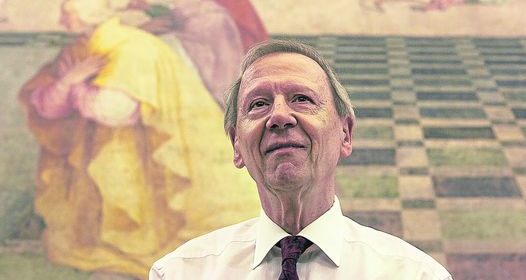I can remember at about the age of eleven being at one of the many Arabic parties I would attend growing up. The women were all laughing and dancing, their head scarves off, no men in the room. They wore beautiful dresses and their hair and makeup were fully done. They looked so elegant as I watched them belly dance effortlessly. I remember wishing my hair was as dark and as thick as theirs. I also wished my skin was as tan and my eyebrows as pretty. Why did I always have to feel like the white girl at the Arabic party? My cousins, aunts, and grandmother often introduced me as such: “ This is Amira, Mazen’s daughter. She’s American.” Years later I would travel to the Middle East- Syria, Jordan, Lebanon, and learn to speak Arabic fluently. Still, no matter what I did, I was never really viewed by that side of the family as being like them. For my Southern American family I was “exotic” and “unique.” They made a special effort to make me feel accepted, yet there were pronounced differences; they were no one’s fault per say, it was just so. I felt it. I didn’t eat pork because my dad raised me that way. I would leave and spend entire summers in Syria. I loved Arabic music. I never quite fit with the American kids at school. I can recall my Syrian grandfather, a devout Muslim, who was new to the U.S. at the time, facing Mecca in my front yard and praying as the neighbors watched. In case you’re wondering, that took my being American off the table for most people.
I am biracial. I love my American side and Arab side equally. I am proud of who I am. For many years, however, I really struggled with my identitiy. All teenagers do for a while I supposed, but I struggled with it much more intensely and for a longer period of time than some. There was a clash between how I viewed myself and how others viewed me. Society often tried to fit me in to one category. That was tough for me. I didn’t fit. As an adult I talked to other people and realized this is common outlook for multi-ethnic individuals. A friend of mine, who is half Iranian, echoed my thoughs when she said to me once, ” When I was around Americans I wasn’t American enough. When I was around Iranians, I wasn’t Iranian enough.”
I took a Sociology class once at a community college before transferring to a major university. I remember this topic choice as one of the first college research papers I would write. I wasn’t surprised by the things I read, but I did feel relieved. It was nice to finally read comments from other people like me that made me want to scream , “Yes. I know! That’s how I felt, too!”
Society is extremely concerned with labeling. Race is one of the biggest categorizes of this labeling. When a person is more than one race, society can sometimes have a problem with this. It can make things confusing. In an effort to simplify things, society makes assumptions. These assumptions can sometimes be unfair, and even conflicting, to the person on the other side of them. To be misunderstood is hard on anyone.
After doing some research I found that most studies showed the majority of people who belong to more than one race want to be identified as neither this race or that race, but as being in a category all its own- “biracial” or “multi-racial.” However, it wasn’t until the year of 2000 that a person could even mark “two or more races” on the U.S. Census Bureau’s question about race. I like the way this is explained in a book called Skin Color and Racial Identity by Brunsma and Rockquemore. “This identity, however, does not exist in all of these individuals’ social networks. If it does exist as a socially understood racial category then the likelihood of this identity option being validated by others is increased. If the category of Biracial does not exist, then these individuals’ racial identity is not validated by other people.” Again, we all want to feel validated. To think that so many multi-racial people see themselves in this way, yet a lot of other people don’t even recognize this as an option is kind of absurd. It’s no wonder why multi-ethnic people can feel confused at times! After all, a person who sees himself as both, but is constantly forced to pick a side can really have anxiety over this. I know for me, I never wanted to bubble in that silly little circle during school tests. It was a dumb circle. I never wanted to have to choose between the two- I was proud of both, loved both parts of my heritage, and loved both sides of my family the same. Peoples’ tendency to want to oversimplify, categorize, and label others, can be detrimental to a multi-ethnic person.
Let’s say, conversely, that a multi-ethnic individual does identify more with one side than the other for what ever reason. Say a person is half Caucasian and half Latin. That he looks Latin, but doesn’t associate much with the culture. He may not identify much with the Latin side of his heritage. How do you suppose people may treat him in society when he claims he is a white American? Again, there is a good chance that some of society will not validate him in his identity. Society may be confused by him, therefore confusing him. Or, what if a person is mixed black and white and black people see him as being black and not white? How do you think he will be treated when he “acts white?” What exactly does that mean, anyway?
For me, I usually exhibit characteristics of whatever the side of the race card I am submerged in at the time. I’ve noticed that my mannerisms, body language, etc. change depending on whether I am with Americans or Arabs. Does this make me “fake?” I don’t think so at all. I can really just draw what I need from the hat because I encompass all of these characteristics. For other people it may seem confusing or phony, but to me it feels normal. The sociologist Rockquemore has said, “For biracial people like him, their self-understanding is based on this fluidity of identity. They see it as a gift, a way to move more comfortably through the world.” The key phrase here is “” more comfortably” as opposed to the single word “comfortably.”
Society can make multiracial people feel uncomfortable and out of place in this world at times. Remember how society treated Halle Barry when she won the Oscar? She talked about how proud she was to be the first black American female to do so, and society let her have it! People couldn’t seem to stop talking about how she was NOT black. The same thing happened when Obama won the election. Before he won he was black. After he won, he was not. Even friends and family members can indirectly show prejudice or be insensitive without even realizing they are, and without knowing the harm they cause. Society needs to let multi-racial people find their own way in this world. This is their right- whether they see themselves as biracial, white, black, Mexican, etc., or belonging to no race at all! Multiracial people do not have to grow up to be confused and depressed; we’re beyond that! In fact, though I struggled with how I was perceived by others and how I perceived myself over the years, I now see being biracial as an advantage. It has made me do way more soul-searching and learn who I am not based on race, but based on even deeper factors of my existence. It has also made me able to relate to people, any people, much better. It has made me more sensitive towards others, more inclined to “ vote for the underdog,” less likely to ever be prejudice against anyone, and a generally more well-rounded person.
Maybe we are all a bit too concerned with race. Multi-racial people defy conventionalism and challenge stereotypes in our mere existence. The challenge for us then, is to come to a place in which we understand ourselves and embrace the paradox within us, the diversity we represent. We may hold a unique position in helping society evolve and see past race and into the soul of an individual. Don’t get me wrong. There is nothing wrong with others wanting to have a racial identity. There is nothing wrong with us wanting it either, to a certain extent. However, if our journey to self- identification finds us in the middle of the ocean, we shouldn’t feel lost or afraid. Maybe we were placed there to build a bridge.

 The Socjourn A New Media Journal of Sociology and Society
The Socjourn A New Media Journal of Sociology and Society

